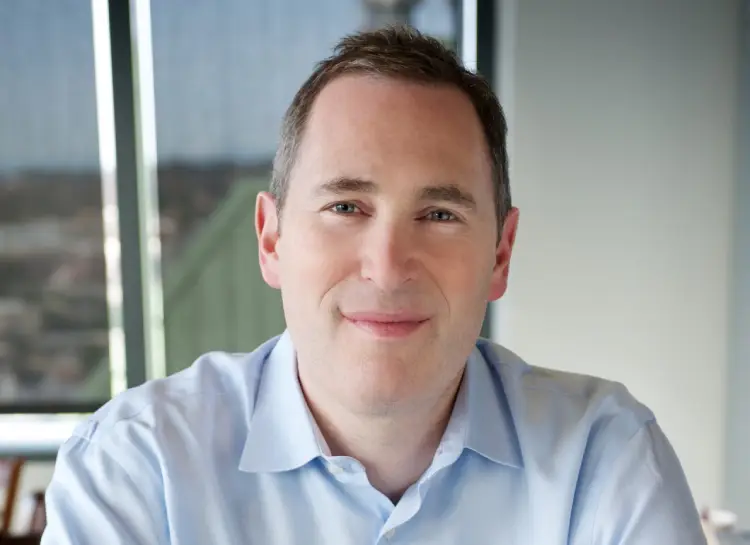
Amazon founder Jeff Bezos announced this week that he will be stepping down as CEO of the e-commerce giant later this year, and that he will be succeeded by Andy Jassy. Jassy is currently CEO of Amazon Web Services, having led the market-creating cloud business since its inception in 2003. This has prompted speculation about who will fill Jassy’s position, arguably the most influential role in IT.
The successful candidate will inherit a business in an enviable position: AWS is the dominant player in the public cloud market and continues to enjoy spectacular revenue growth. Yesterday, the division reported quarterly earnings of $12.7bn, up 28% year-on-year. The new CEO is also certain to have strong backing from Jassy, who is well aware of AWS’s significance to Amazon.
But the new CEO will also have a particularly tough act to follow and will face concerted effort from Amazon’s cloud rivals to chip away at its market dominance.

Impressive growth maintains AWS market share – for now
AWS’s Q4 revenue of $12.7bn was up from $9.95bn a year earlier. It reported a profit of $3.56bn, up 37% year-on-year and accounting for 52% of Amazon’s total income for the quarter.
Both figures were slightly below analyst expectations but were enough to see AWS maintain its market share, according to figures from Synergy Research Group, which says AWS held a 32% share of the public cloud market in Q4. This is consistent with its performance over the past four years, where it has been steady at 32–34% of the market.
Hot on its heels is Microsoft Azure, which has doubled its share of the market over the past four years, from 10% to 20%. Microsoft has achieved this by taking business from smaller providers, reflecting a wider trend where cloud infrastructure is increasingly dominated by a small group of big companies.
“The market share losers have been the large group of smaller cloud providers, who collectively have lost 13% of market share over the last 16 quarters,” Synergy says.
Can Azure make further in-roads on AWS’s position? “It is certainly feasible that Microsoft will continue to narrow the gap between itself and Amazon,” says John Dinsdale, a chief analyst at Synergy Research Group. “But the bigger Microsoft Azure becomes the tougher it is to maintain really high growth rates. That is just the law of large numbers.
“What I would say is that the absolute market numbers are huge and the gaps between the cloud providers are also huge.”
Google Cloud, which holds 9% of the market, has seen more modest growth over the past four years and, as a result, is some way behind its two big rivals.
But Dinsdale says: “Below [AWS and Azure], the market numbers are such that Google Cloud can be very successful without ever catching up to AWS and Microsoft. Is Google happy to continue being the number three player? You’d have to ask them.”
Overall the public cloud market is looking healthy, with enterprise spending on cloud infrastructure services coming in at $37bn for Q4, $4bn higher than the previous quarter and up 35% year-on-year. “2020 ended with a bang for the cloud market,” Dinsdale adds.
New AWS CEO – the contenders
Bezos, who founded Amazon in 1994, will step aside for Jassy and take on an omnipotent-sounding executive chairman role, which will allow him to spend more time on his other projects such as space venture Blue Origin.

“Andy is well known inside the company and has been at Amazon almost as long as I have,” Bezos said yesterday. “He will be an outstanding leader, and he has my full confidence.”
A decision has yet to be made on Jassy’s successor, with Amazon CFO Brian Olsavsky telling analyst’s on the company’s Q4 earnings call: “We will be working on backfilling the AWS role and we will talk more about that in the future, but for now, today is about Andy and Jeff Bezos.”
Jassy’s successor is likely to come from within the company. Olsavsky made repeated references to the company’s preference for promoting from within, stating Amazon has great “bench strength” and citing Jassy and Jeff Wilke, the former boss of Amazon consumer who retired last year, as examples of long-term Amazonians who ascended to senior roles.
Two insiders tipped for the top AWS job are Matt Garman, currently AWS vice-president for sales and marketing, and Peter DeSantis, AWS vice president for global infrastructure. Both are members of the ‘S-team’, Bezos’s senior leadership group which is likely to be retained by Jassy.






